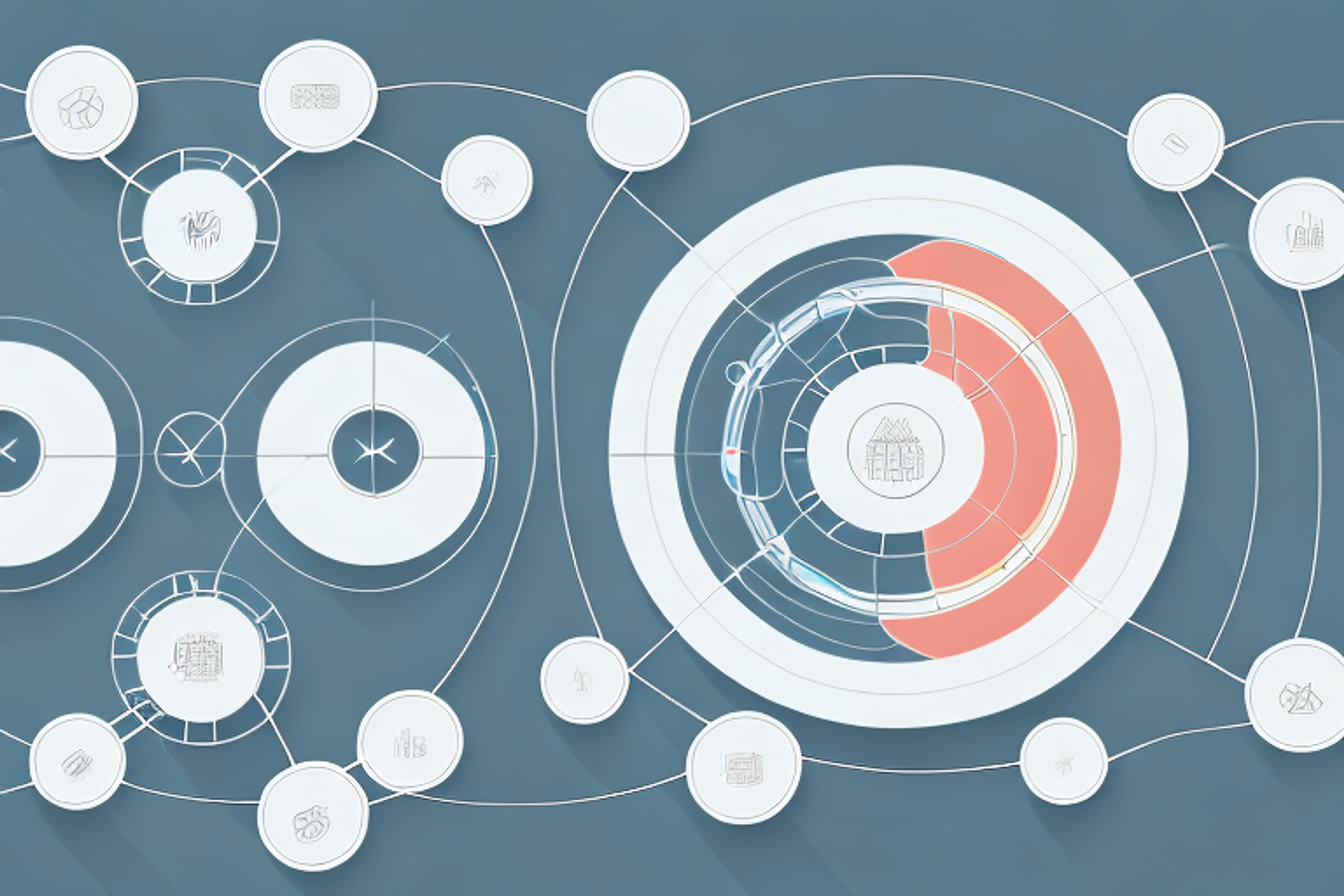Management Consulting Vs Social Impact Consulting: A Side-by-Side Comparison
Discover the differences between management consulting and social impact consulting in this comprehensive side-by-side comparison.
Posted April 10, 2025

Table of Contents
Management consulting and social impact consulting are two distinct career paths that have become increasingly popular in recent years. While they share some similarities, such as the need for strategic thinking and problem-solving skills, there are also key differences that set them apart. In this article, we'll dive deep into each field to give you a comprehensive comparison of management consulting vs social impact consulting.
What is Management Consulting?
Management consulting is a field that involves advising businesses on how to improve their performance and efficiency. Consultants work with companies of all sizes and in all industries, providing expert advice on issues like strategy, operations, finance, and human resources. The goal of management consulting is to help businesses become more profitable and competitive.
One of the key benefits of management consulting is that it provides an outside perspective on a company's operations. Consultants can identify areas where a business may be falling short or missing opportunities for growth that may not be apparent to those within the organization. This fresh perspective can help businesses make more informed decisions and take advantage of new opportunities.
Another important aspect of management consulting is the ability to provide customized solutions to meet the unique needs of each business. Consultants work closely with their clients to understand their goals, challenges, and opportunities, and then develop tailored strategies to help them achieve success. This personalized approach ensures that businesses receive the support they need to overcome their specific challenges and achieve their desired outcomes.
What is Social Impact Consulting?
Social impact consulting, on the other hand, focuses on using business strategies to solve social and environmental problems. Consultants in this field work with non-profits, governments, and other organizations to create positive change in the world. They may work on initiatives like poverty reduction, environmental sustainability, or education reform.
One of the key benefits of social impact consulting is that it allows organizations to approach social and environmental issues in a more strategic and sustainable way. By leveraging business expertise and resources, consultants can help non-profits and governments develop more effective solutions that have a greater impact on the communities they serve.
Another important aspect of social impact consulting is the emphasis on collaboration and partnership. Consultants often work closely with stakeholders from a variety of sectors, including government agencies, non-profits, and community groups, to ensure that their solutions are inclusive and address the needs of all stakeholders. This collaborative approach can lead to more innovative and effective solutions that have a lasting impact on society and the environment.
Key Differences Between Management Consulting and Social Impact Consulting
While both management consulting and social impact consulting involve helping organizations improve, they have different approaches and goals. Management consulting is primarily focused on improving a company's financial performance, while social impact consulting is centered around creating positive social and environmental outcomes. Additionally, management consulting tends to be more profit-driven, while social impact consulting is often driven by a mission to do good in the world.
Another key difference between management consulting and social impact consulting is the types of clients they work with. Management consulting firms typically work with large corporations and businesses, while social impact consulting firms often work with non-profit organizations, government agencies, and social enterprises. This difference in clientele can also impact the types of projects and solutions that are developed by each type of consulting firm.
The Importance of Business Acumen in Management Consulting
One of the key skills needed for a career in management consulting is business acumen. This means having a deep understanding of how businesses operate, including financial and operational processes. Consultants in this field need to be able to analyze data and identify areas where a business can improve its performance. They must also be able to communicate complex ideas and strategies to senior executives.
Furthermore, having business acumen is not just about understanding the internal workings of a company. It also involves being aware of external factors that can impact a business, such as changes in the market or shifts in consumer behavior. A consultant with strong business acumen can help a company navigate these challenges and stay ahead of the competition.
The Role of Empathy in Social Impact Consulting
Empathy is a key trait for social impact consultants. In order to create positive change, they need to be able to understand the needs and perspectives of the people and communities they are working with. Social impact consultants must be able to listen to others and collaborate effectively in order to create sustainable solutions to social problems.
Furthermore, empathy allows social impact consultants to build trust and establish strong relationships with the individuals and communities they serve. By showing empathy, consultants can demonstrate that they genuinely care about the well-being of others and are committed to making a positive impact. This can lead to increased engagement and participation from community members, ultimately resulting in more effective and sustainable solutions to social issues.
How Management Consulting Impacts the Bottom Line
The primary goal of management consulting is to improve a company's profitability. By identifying inefficiencies and areas for improvement, consultants can help businesses become more competitive and increase their revenue. Additionally, management consulting can help organizations adapt to changes in the market and stay ahead of the competition.
One way that management consulting can impact the bottom line is by streamlining processes and reducing costs. Consultants can analyze a company's operations and identify areas where resources are being wasted or where processes can be made more efficient. By implementing these changes, businesses can save money and increase their profit margins.
Another benefit of management consulting is that it can provide a fresh perspective on a company's operations. Consultants bring a wealth of experience and knowledge from working with other businesses, and can offer insights and ideas that may not have been considered before. This can lead to innovative solutions and new opportunities for growth and profitability.
How Social Impact Consulting Impacts Society and the Environment
The impact of social impact consulting is more far-reaching than that of management consulting. Consultants in this field work to create positive social and environmental outcomes, such as reducing poverty or protecting natural resources. Social impact consulting can help organizations create more sustainable, equitable, and just outcomes for people and the planet.
One way that social impact consulting can impact society is by promoting social justice. Consultants in this field work with organizations to identify and address systemic inequalities, such as discrimination based on race, gender, or socioeconomic status. By promoting social justice, social impact consulting can help create a more fair and equal society.
Another way that social impact consulting can impact the environment is by promoting sustainable practices. Consultants in this field work with organizations to identify ways to reduce their environmental impact, such as by using renewable energy sources or reducing waste. By promoting sustainable practices, social impact consulting can help protect natural resources and mitigate the effects of climate change.
The Skills and Qualifications Needed for a Career in Management Consulting
Entry-level positions in management consulting typically require a bachelor's degree in a related field, such as business or economics. However, many firms also prefer candidates with a master's degree in business administration (MBA). Key skills for management consultants include critical thinking, data analysis, and communication.
In addition to formal education and key skills, management consultants must also possess strong interpersonal skills. This is because they often work closely with clients to identify problems, develop solutions, and implement changes. Effective consultants must be able to build trust and rapport with clients, as well as communicate complex ideas in a clear and concise manner. Additionally, consultants must be adaptable and able to work in a fast-paced, ever-changing environment, as projects can vary greatly in scope and duration.
The Skills and Qualifications Needed for a Career in Social Impact Consulting
Entry-level positions in social impact consulting may require a degree in a related field, such as social work, public policy, or environmental science. However, many firms are also open to candidates with diverse backgrounds and experiences. Key skills for social impact consultants include empathy, collaboration, and adaptability.
In addition to the aforementioned skills and qualifications, social impact consultants must also possess strong analytical and problem-solving skills. They must be able to analyze complex social issues and develop effective solutions that address the root causes of these issues. They must also be able to communicate these solutions to clients and stakeholders in a clear and concise manner.
Another important skill for social impact consultants is project management. They must be able to manage multiple projects simultaneously, ensuring that each project is completed on time and within budget. This requires strong organizational skills, attention to detail, and the ability to prioritize tasks effectively.
Case Studies: Real-Life Examples of Successful Management Consulting Projects
A well-known example of successful management consulting is when McKinsey & Company helped turn around the struggling airline, Delta, in the early 2000s. By streamlining operations and improving customer service, McKinsey helped Delta become one of the most profitable airlines in the world today.
Case Studies: Real-Life Examples of Successful Social Impact Consulting Projects
An example of a successful social impact consulting project is when The Bridgespan Group helped the Edna McConnell Clark Foundation (EMCF) develop its Growth Capital Aggregation Pilot (GCAP) program, which aimed to improve the effectiveness of non-profit organizations. GCAP helped EMCF become a leader in the field of impact investing and generated over $500 million in funding for non-profits.
Choosing Between a Career in Management Consulting or Social Impact Consulting
Deciding between a career in management consulting or social impact consulting ultimately comes down to your personal values and career goals. If you are motivated by profit and improving efficiency, management consulting may be the best fit for you. On the other hand, if you are passionate about creating positive impact in the world, social impact consulting may be more aligned with your values.
The Future of Management and Social Impact Consulting Industries
The management consulting industry is projected to continue growing as businesses seek to stay competitive and adapt to changing market conditions. The social impact consulting industry is also expected to grow, as more companies prioritize social and environmental responsibility in their operations.
Tips on How to Transition from Management to Social Impact Consulting, or Vice Versa
If you are looking to transition from management consulting to social impact consulting, or vice versa, here are some tips to help you make the switch:
- Seek out relevant experience or education in the field you want to transition to
- Build a network of professionals in your desired field
- Show how your existing skills and experiences can be applied to the new field
- Highlight your passion for the new field and your commitment to creating positive impact
Wrap-Up: What We've Learned About the Differences Between Management and Social Impact Consulting
In summary, management consulting and social impact consulting are two distinct fields that have different approaches and goals. Management consulting is focused on improving financial performance, while social impact consulting is centered around creating positive social and environmental outcomes. Both fields require unique skill sets, qualifications, and experiences. Ultimately, the best choice depends on your personal values and career goals.



















